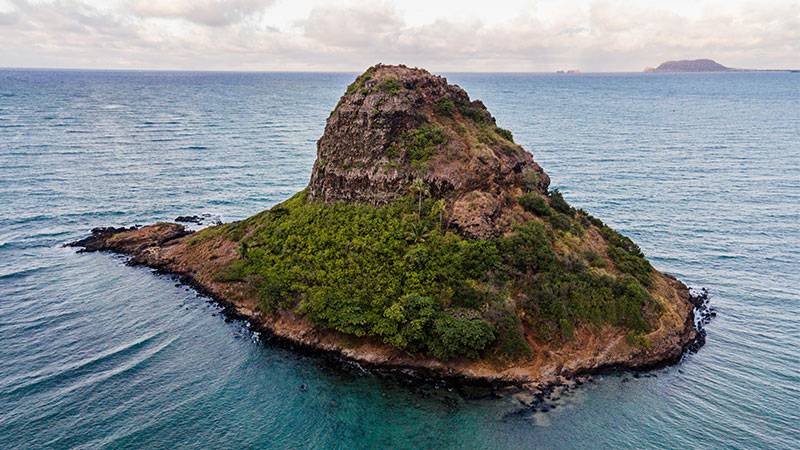The once desolate Caribbean island of Redonda has undergone a remarkable transformation, evolving from a barren rock to a thriving wildlife sanctuary in a matter of years. This eco-restoration feat has not only garnered global attention but also stands as a testament to the dedication and efforts of the local Antiguans and Barbudans.
Recently, the government of Antigua and Barbuda officially designated Redonda as a protected area. This mile-long island now plays a crucial role as a nesting site for migratory birds and houses species that are unique to this part of the world. The Redonda Ecosystem Reserve, which includes the surrounding seagrass meadows and coral reef, covers an impressive 30,000 hectares (74,000 acres). This designation means that the nation has achieved its “30×30” target, an international initiative to conserve 30% of the planet’s land and oceans by 2030.
Redonda’s current state is a stark contrast to its past. The island’s ecosystem was previously threatened by invasive black rats and goats, which decimated its vegetation and preyed on its native species. However, a bold initiative in 2016, led by the local NGO Environmental Awareness Group (EAG) in collaboration with the government and international partners like Fauna and Flora International (FFI), aimed to relocate these invasive species. The project’s success led to a resurgence in native flora and fauna, turning the island into a biodiversity hotspot.
Arica Hill, the EAG’s executive director, expressed her pride in the achievement, emphasizing the significance of the government’s trust in their organization to manage the largest marine protected area in the Eastern Caribbean. The EAG is now focusing on reintroducing species that once inhabited Redonda, such as the burrowing owl. Additionally, they are implementing measures to ensure the island remains free from invasive species, including surveillance systems and strict fishing guidelines.
Jenny Daltry from FFI highlighted the importance of such conservation efforts, noting that Caribbean islands are experiencing alarming extinction rates. Since the restoration began, 15 species of land birds have returned, and the population of the critically endangered Redonda ground dragon has seen a significant increase.
“This is the largest marine protected area in the Eastern Caribbean; it showcases the amazing work that conservationists and environmentalists can do right at home,” she tells the BBC. “What is even more significant is that the government has trusted us to legally manage it too.”
According to BBC, local residents, who once referred to Redonda simply as “the rock,” have become its staunchest protectors. Shanna Challenger of EAG emphasized the national pride this project has instilled. She believes that Redonda’s success story can inspire other nations, especially those facing the brunt of climate change, to take proactive conservation measures.
Johnella Bradshaw, the reserve’s coordinator, shared a personal perspective on the transformation. She recalled a time when careers in environmental conservation in the Caribbean were almost unheard of. Today, she is proud that Redonda is at the forefront of global conservation efforts, challenging stereotypes and inspiring future generations.
However, the challenges posed by climate change remain. The Caribbean region, including Antigua and Barbuda, faces the dire consequences of rising temperatures and intensifying storms. Johnella emphasized the importance of collective action in combating these challenges, stating that every effort counts in making a tangible difference.
Redonda’s journey from desolation to a beacon of conservation serves as a powerful reminder of what can be achieved with dedication, collaboration, and a vision for a sustainable future.
More inspiring green news similar to this:


